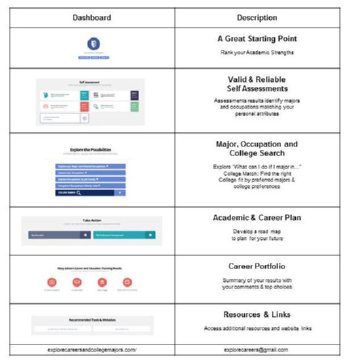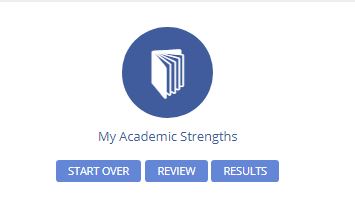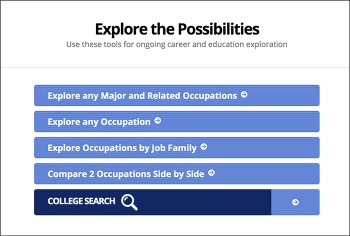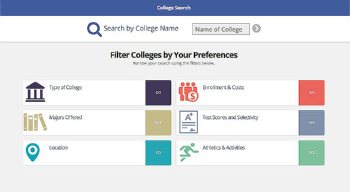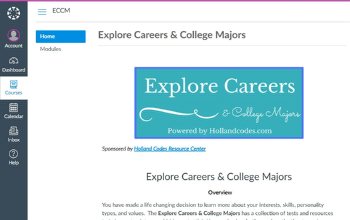Two Sides of a Coin - There are two popular ways to build self awareness and explore careers.
Career Clusters and Holland Codes
Holland Codes is a tool that matches interests to careers. A Career Cluster is a group of jobs and industries that are related by skills or products.
Holland Codes
The Holland Codes identify interest areas, personalities, work environments and careers. The Holland Code Work Interest Areas are:- Realistic
- Investigative
- Artistic
- Social
- Enterprising
- Conventional
The 16 Career Clusters® and 79 Career Pathways
After 50 years of research, there are research has reported the following 16 Career Clusters® & 79 Career Pathways -Agriculture, Food and Natural Resources
- Agribusiness Systems
- Animal Systems
- Environmental Service Systems
- Food Products & Processing Systems
- Natural Resources Systems
- Plant Systems
- Power, Structural & Technical Systems
- Construction
- Design/ Pre-Construction
- Maintenance/ Operations
- A/V Technology & Film
- Journalism & Broadcasting
- Performing Arts
- Printing Technology
- Telecommunications
- Visual Arts
- Administrative Support
- Business Information Management
- General Management
- Human Resources Management
- Operations Management
- Administration & Administrative Support
- Professional Support Services
- Teaching/ Training
- Accounting
- Banking Services
- Business Finance
- Insurance
- Securities & Investments
- Foreign Service
- Governance
- National Security
- Planning
- Public Management & Administration
- Regulation
- Revenue & Taxation
- Biotechnology Research & Development
- Diagnostic Services
- Healthy Information
- Support Services
- Therapeutic Services
- Lodging
- Recreation, Amusements & Attractions
- Restaurants & Food/ Beverage Services
- Travel & Tourism
- Consumer Services
- Counseling & Mental Health Services
- Early Childhood Development & Services
- Family & Community Services
- Personal Care Services
- Information Support & Services
- Network Systems
- Programming & Software Development
- Web & Digital Communications
- Correction Services
- Emergency & Fire Management Services
- Law Enforcement Services
- Legal Services
- Security & Protective Services
- Healthy, Safety & Environmental Assurance
- Logistics & Inventory Control
- Maintenance, Installation & Repair
- Manufacturing Production Process Development
- Production
- Quality Assurance
- Marketing Communications
- Marketing Management
- Marketing Research
- Merchandising
- Professional Sales
- Engineering & Technology
- Science & Mathematics
- Facility & Mobile Equipment Maintenance
- Health, Safety & Environmental Management
- Logistics Planning & Management Services
- Sales & Service
- Transportation Operations
- Transportation Systems/ Infrastructure Planning, Management & Regulation
- Warehousing & Distribution Center Operations
HollandCodes.com has developed resources that show the relationship between the Career Clusters, Green Careers and Holland Codes -
- Career Clusters and Holland Codes Cross-Reference Table
- Green Careers, Career Clusters and Holland Codes Reference Guide
Career Clusters and Holland Codes Cross-Reference Table
Here is an example of the Career Clusters and Holland Codes Cross-Reference Table.
Holland Code
|
Holland Codes Personality Type (1)
|
Holland Codes Personality Type (2)
|
GOE Interest Areas
|
RI
|
Realistic | Investigative | Agriculture, Food, & Natural Resources |
| R | Realistic | Architecture & Construction | |
| R | Realistic | Manufacturing | |
| R | Realistic | Transportation, Distribution & Logistics |
Green Careers, Career Clusters and Holland Codes Reference Guide
The Green Careers, Career Clusters and Holland Codes Reference Guide provides detailed descriptions of more than 150 occupations, covering topics such as:
- O*NET-SOC Codes
- Job titles
- Green occupational categories
- Interest areas/ Holland Codes
- Career clusters/ career cluster pathways
- Daily tasks (what workers do on the job).
This guide is an excellent reference for many different tasks -
- Career exploration
- Lesson planning
- College majors
- Career planning
- Occupational research
Read more...




